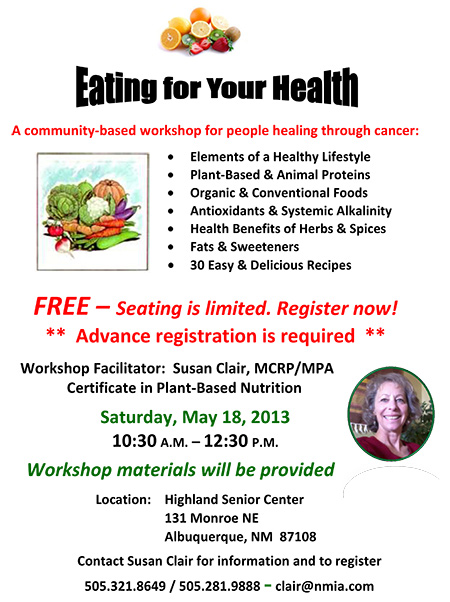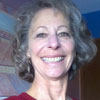Page 4
By the time I had completed my three-month holistic healing experiment, my original oncologist had returned from his sabbatical. In early May, we met to discuss my clear MRI and to schedule another MRI six months later. Within that meeting, he said that he believed I should still have surgery to check for any remaining cancer. Stunned by his comment, I said, “Absolutely not! I’m sorry the cancer center did not make enough money from my case, but I’m done.” Later, he conceded that he was comfortable with my decision to refuse surgery, not because he agreed with me but because he believed I had made an informed decision. To his credit, he asked for a list of my holistic therapies, to place it in my medical file. I provided the list, but we did not discuss it. He asked that I contact him if I have any pain, new lumps, or other problems related to my cancer. I said I would, but I knew I would not need to do that, if I maintained my healthy lifestyle.
In December 2007, less than eight months postcancer, I completed my UNM graduate program. I have great respect and appreciation for my excellent graduate-level instructors, especially those who supported me during the uncertainty of my illness. Still, my year-long cancer odyssey seemed to be the educational equivalent of several graduate degrees, with life-changing course content.
Since my diagnosis, I stopped having mammograms because they use carcinogenic, ionizing radiation and have a known error rate of around 20 percent (my tumors were not visible on my mammograms). For two years after my cancer-free MRI, I had semiannual MRIs and, then, annual ultrasounds. In late 2012, I had a breast thermagram, a safe and effective form of digital scanning that uses heat sensitivity (tumors produce heat), and I learned that I am still cancer free.
For all of this, I am in awe of the body’s natural capacity to heal itself, even under dismal and seemingly irreversible disease conditions. I am amused at my own not-so-natural capacity to reset the priorities of my life, so that I maintain my organic plant-based food program, get sufficient rest and exercise, keep stress to a minimum, and ensure that my spirituality is nourished daily.
With sublime joy and gratitude for my restored health, I will always honor the people who taught me what I needed to know (a lot!), brought me organic food, drove me to chemo-drip sessions, accompanied me during routine appointments to catch crucial pieces of information that my “chemo brain” did not absorb, prayed for me (some, friends of friends, did not even know me), and especially those who loved me unconditionally—yet still feared for me—when I was determined to proceed on my own terms.
I now understand the significant challenges of navigating a dysfunctional and often-demanding medical system (inconceivable, however, if English was not my primary language, as is the case for many cancer patients in New Mexico), arranging transportation to chemo appointments, and preparing my own meals while maintaining my small business and continuing my anticancer research. Often I considered, what if I did not have a computer and easy access to the universe of information swirling around the Internet? And what if I had no research skills and no ability to synthesize or distill all the information I was accumulating?
If Hippocrates was alive today, he might appreciate my coming to better know the person who had my disease. My year-long experience reminded me of my considerable capacity to persevere under challenging conditions, follow my intuition, act without fear, apply my acquired knowledge of logic and analytical skills, and be compassionate to myself and to others.
At times, I have felt a kind of survivor’s guilt for healing through advanced, multitumor cancer with all my body parts intact and unirradiated and taking no postchemo drugs. My heart aches when I learn of a breast cancer patient, who had a mastectomy (or two), when her cancer was less advanced than mine.
I have seen individuals and families devastated by the diagnosis, emotional trauma, and disfigurement of cancer treatments. I am angry about the unspoken collusion of the conventional medical establishment, pharmaceutical companies, and insurance carriers. I know that when we are sick they make billions of dollars. The “cancer economy” would collapse if people understood how to heal themselves or, better yet, how to avoid getting sick. One has only to look at the ever-increasing incidences of all varieties of cancer or to read The Secret History of the War on Cancer (2007) by Devra Davis, Ph.D., to know that cancer has long been a big, shadowy industry and is getting bigger still.
Industrial agriculture, ballooning over the past six decades, is a huge contributor to the declining health of the general population. Federally subsidized farmers grow interspecies genetically modified crops known to cause health problems in humans, pets, and livestock. They use toxic pesticides and chemical fertilizers that deplete the soil, resulting in foods deficient in necessary nutrients. Agricultural megacorporations spend many billions of dollars in opposition to honest labeling of foods—as they did in the 2012 California general election, to block proposition 37—so consumers won’t know whether the food they purchase has genetically modified ingredients.
We all need to be our own best advocates, for our own health, the health of future generations, and the health of the planet. My cancer experience left me shaken to the core on the state of conventional “disease care” in this country. These days, I gladly speak with anyone about this issue and, also, try to engage others who might at first be reluctant to learn. The really good news is, the health-care pendulum is gaining momentum in its current arc, moving toward integrative healing programs that emphasize the importance of rebuilding the body’s immune system to prevent and heal illness.
*breast cancer diagram CC Image by TipsTimes on Flickr





Responses to “How breast cancer helped me know who I am”